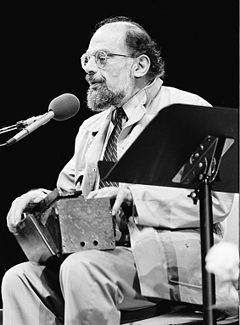The story has now changed four times in four days.. This is from the comprehensive reporting by Spenser Ackerman at The Guardian:
US special operations forces – not their Afghan allies – called in the deadly airstrike on the Doctors Without Borders hospital in Kunduz, the US commander has conceded. [..].
Shifting the US account of the Saturday morning airstrike for the fourth time in as many days, Campbell reiterated that Afghan forces had requested US air cover after being engaged in a “tenacious fight” to retake the northern city of Kunduz from the Taliban. But, modifying the account he gave at a press conference on Monday, Campbell said those Afghan forces had not directly communicated with the US pilots of an AC-130 gunship overhead. [..]
Campbell did not explain whether the procedures to launch the airstrike took into account the GPS coordinates of the MSF field hospital, which its president, Joanne Liu, said were “regularly shared” with US, coalition and Afghan military officers and civilian officials, “as recently as Tuesday 29 September”. [..]
It is also unclear where the US special operations forces were relative to the fighting, but Campbell has said that US units were “not directly engaged in the fighting”.
Campbell instead said the hospital was “mistakenly struck” by US forces.
“We would never intentionally target a protected medical facility,” Campbell told US lawmakers, declaring that he wanted an investigation by his command to “take its course” instead of providing further detail.
But Jason Cone, Doctors Without Borders’ US executive director, said Campbell’s shifting story underscored the need for an independent inquiry.
“Today’s statement from General Campbell is just the latest in a long list of confusing accounts from the US military about what happened in Kunduz on Saturday,” Cone said.
“They are now back to talking about a ‘mistake’. A mistake that lasted for more than an hour, despite the fact that the location of the hospital was well known to them and that they were informed during the airstrike that it was a hospital being hit. All this confusion just underlines once again the crucial need for an independent investigation into how a major hospital, full of patients and MSF staff, could be repeatedly bombed.” [..]
Mary Ellen O’Connell, a professor of international law at the University of Notre Dame, said that according to international humanitarian law, the critical question for determining if US forces committed a war crime was whether they had notified the hospital ahead of the strike if they understood the Taliban to be firing from the hospital.
“Any serious violation of the law of armed conflict, such as attacking a hospital that is immune from intentional attack, is a war crime. Hospitals are immune from attack during an armed conflict unless being used by one party to harm the other and then only after a warning that it will be attacked,” O’Connell said.
emphasis mine
Ths is today’s statement from MSF’s International President, Dr Joanne Liu on this blatant breach of international law
For four years, the MSF trauma center in Kunduz was the only facility of its kind in northeastern Afghanistan, offering essential medical and surgical care. On Saturday, October 3, this came to an end when the hospital was deliberately bombed. Twelve MSF staff and 10 patients, including three children, were killed, and 37 people were injured, including 19 members of the MSF team. The attack was unacceptable.
The whole MSF Movement is in shock, and our thoughts are with the families and friends of those affected. Nothing can excuse violence against patients, medical workers and health facilities. Under International Humanitarian Law hospitals in conflict zones are protected spaces. Until proven otherwise, the events of last Saturday amount to an inexcusable violation of this law. We are working on the presumption of a war crime.
In the last week, as fighting swept through the city, 400 patients were treated at the hospital. Since its opening in 2011, tens of thousands of wounded civilians and combatants from all sides of the conflict have been triaged and treated by MSF. On the night of the bombing, MSF staff working in the hospital heard what was later confirmed to be a US army plane circle around multiple times, releasing its bombs on the same building within the hospital compound at each pass. The building targeted was the one housing the intensive care unit, emergency rooms and physiotherapy ward. Surrounding buildings in the compound were left largely untouched.
Despite MSF alerting both the Afghan and Coalition military leadership, the airstrike continued for at least another 30 minutes. The hospital was well-known and the GPS coordinates had been regularly shared with Coalition and Afghan military and civilian officials, as recently as Tuesday, September 29.
This attack cannot be brushed aside as a mere mistake or an inevitable consequence of war. Statements from the Afghanistan government have claimed that Taliban forces were using the hospital to fire on Coalition forces. These statements imply that Afghan and US forces working together decided to raze to the ground a fully functioning hospital, which amounts to an admission of a war crime.
This attack does not just touch MSF, but it affects humanitarian work everywhere, and fundamentally undermines the core principles of humanitarian action. We need answers, not just for us but for all medical and humanitarian staff assisting victims of conflict, anywhere in the world. The preserve of health facilities as neutral, protected spaces depends on the outcome of a transparent, independent investigation.
emphasis mine
The “mistake” is that the US knowingly committed a war crime by targeting and bombing a hospital, killing 22 people, wounding 37 and depriving Kunduz of its only hospital.
Of course the US, and the Afghan government don’t want an independent investigation, what criminal would?
You can warch Gen. Campbell’s full testimony before the Senate Aemed Services Committee below the fold.



Recent Comments